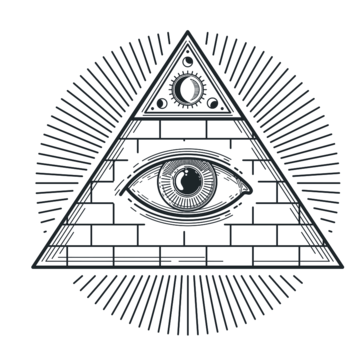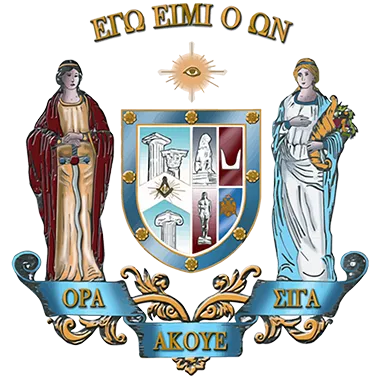FREQUENTLY ASKED QUESTIONS

Freemasonry is an ancient and global philosophical system that focuses on moral cultivation and personal improvement. Its principles are based on the use of symbols and traditions that promote self-awareness, solidarity, and brotherhood.
It is neither a religion nor a political organization. Instead, it is a community of individuals who believe in the value of spiritual exploration, dialogue, and mutual understanding. Its goal is to help its members develop their virtues and promote good in society.
Through its teachings, Freemasonry reinforces truth, justice, and freedom, while also promoting the concept of universal brotherhood, regardless of religion, nationality, or social class.
It is neither a religion nor a political organization. Instead, it is a community of individuals who believe in the value of spiritual exploration, dialogue, and mutual understanding. Its goal is to help its members develop their virtues and promote good in society.
Through its teachings, Freemasonry reinforces truth, justice, and freedom, while also promoting the concept of universal brotherhood, regardless of religion, nationality, or social class.

The secrecy in Freemasonry is often misunderstood. It does not involve hiding any “secret knowledge” but rather protects the private nature of its rituals and the personal commitment of each member’s experience.
Secrecy serves as a means of self-concentration and spiritual reflection. The rituals of the Lodges are not merely symbolic acts but tools for strengthening moral values and self-improvement.
Additionally, secrecy provides a safe space for members to develop their character without external interference or criticism. It is important to note that the principles and values of Freemasonry are well-known and accessible to all, while many activities of the Masonic Lodges are public.
Secrecy serves as a means of self-concentration and spiritual reflection. The rituals of the Lodges are not merely symbolic acts but tools for strengthening moral values and self-improvement.
Additionally, secrecy provides a safe space for members to develop their character without external interference or criticism. It is important to note that the principles and values of Freemasonry are well-known and accessible to all, while many activities of the Masonic Lodges are public.

Any adult man of good moral standing, who respects human life and believes in a Supreme Being, can apply to become a member.
There are no distinctions based on religion, nationality, or social class. On the contrary, Freemasonry encourages diversity, viewing it as a source of wealth and learning.
The process of joining is transparent and includes submitting an application, an interview with members of the Lodge, and, if approved, initiation through a ceremonial process. This process is not intended to exclude but to ensure that the new member shares the values of the Brotherhood.
There are no distinctions based on religion, nationality, or social class. On the contrary, Freemasonry encourages diversity, viewing it as a source of wealth and learning.
The process of joining is transparent and includes submitting an application, an interview with members of the Lodge, and, if approved, initiation through a ceremonial process. This process is not intended to exclude but to ensure that the new member shares the values of the Brotherhood.

Freemasonry works toward the moral improvement of individuals and society. Its goal is the cultivation of virtues, the development of self-awareness, and the promotion of solidarity among people.
Through teachings and symbolic acts, members are encouraged to seek truth, confront their passions, and serve the greater good. At the same time, philanthropy and assistance to others are promoted, either through organized initiatives or individual efforts.
Participation in a Masonic circle is not limited to meetings and rituals but also includes activities aimed at improving society, such as charitable projects and educational initiatives.
Through teachings and symbolic acts, members are encouraged to seek truth, confront their passions, and serve the greater good. At the same time, philanthropy and assistance to others are promoted, either through organized initiatives or individual efforts.
Participation in a Masonic circle is not limited to meetings and rituals but also includes activities aimed at improving society, such as charitable projects and educational initiatives.

No, Freemasonry does not engage in or influence political matters or conflicts. It is strictly neutral and prohibits any political or religious discussions during meetings.
Freemasons are encouraged to be active citizens, respecting the laws of their country and contributing positively to society. However, personal political or religious beliefs remain outside the Masonic framework.
The purpose of Freemasonry is not to alter social structures but to shape better individuals who, through their personal integrity, can contribute positively to society.
Freemasons are encouraged to be active citizens, respecting the laws of their country and contributing positively to society. However, personal political or religious beliefs remain outside the Masonic framework.
The purpose of Freemasonry is not to alter social structures but to shape better individuals who, through their personal integrity, can contribute positively to society.

The National Grand Lodge of Greece has been recognized by many Regular Grand Lodges worldwide. Through these relationships, global brotherhood and collaboration are strengthened.
This recognition is based on upholding Regular Principles and adhering to international Masonic traditions. These relationships facilitate the exchange of ideas and participation in global Masonic activities, enhancing the position of the NGLG within the worldwide Masonic movement.
This recognition is based on upholding Regular Principles and adhering to international Masonic traditions. These relationships facilitate the exchange of ideas and participation in global Masonic activities, enhancing the position of the NGLG within the worldwide Masonic movement.

The history of Freemasonry is deeply rooted in traditions and ideals that have evolved over the centuries. The first organized Lodges appeared in England in the 17th century, although the symbolic elements of Freemasonry trace back to the medieval guilds of stonemasons.
In Greece, Freemasonry has been present since the 18th century. The first Lodge was established in the Ionian Islands, and the tradition continued and expanded after the Greek War of Independence. The National Grand Lodge of Greece was founded in 1986 and continues to operate in accordance with the Regular Principles of global Freemasonry.
In Greece, Freemasonry has been present since the 18th century. The first Lodge was established in the Ionian Islands, and the tradition continued and expanded after the Greek War of Independence. The National Grand Lodge of Greece was founded in 1986 and continues to operate in accordance with the Regular Principles of global Freemasonry.

No, Freemasonry is not a religion. While it requires its members to believe in a Supreme Being, it does not engage in religious doctrines or practices.
On the contrary, it respects all religions and recognizes the importance of spirituality for each individual. Freemasonry aims to serve as a space for dialogue and understanding, bringing together people from diverse cultural and religious backgrounds.
On the contrary, it respects all religions and recognizes the importance of spirituality for each individual. Freemasonry aims to serve as a space for dialogue and understanding, bringing together people from diverse cultural and religious backgrounds.

No, Freemasonry is not a “secret society.” It is an organization with specific principles and structures that are well-known and publicly accessible.
The use of secrecy applies only to its rituals and the preservation of members’ personal experiences. This ensures the seriousness and spiritual significance of Masonic teachings.
Additionally, many activities of the National Grand Lodge of Greece, such as charitable projects, are open to the public.
The use of secrecy applies only to its rituals and the preservation of members’ personal experiences. This ensures the seriousness and spiritual significance of Masonic teachings.
Additionally, many activities of the National Grand Lodge of Greece, such as charitable projects, are open to the public.

Freemasonry has played a significant role in shaping values such as freedom, justice, and solidarity. Its members are encouraged to actively participate in social life, helping their fellow humans and promoting progress.
The National Grand Lodge of Greece supports charitable organizations, develops cultural initiatives, and fosters moral development through the teaching and practical application of its values.
The National Grand Lodge of Greece supports charitable organizations, develops cultural initiatives, and fosters moral development through the teaching and practical application of its values.

Participation in Freemasonry offers members the opportunity to grow as individuals and as citizens. Members find a safe space to seek truth, cultivate their virtues, and build relationships of trust and collaboration.
Through participation in rituals, discussions, and collective activities, members gain a new perspective on life, improve their character, and actively contribute to shaping a better society.
Through participation in rituals, discussions, and collective activities, members gain a new perspective on life, improve their character, and actively contribute to shaping a better society.

If you wish to learn more about Freemasonry and the National Grand Lodge of Greece, you can fill out the contact form on our official website, located in the “Contact” menu, or reach out to our Secretariat at the email: grand.secretary@nglgreece.gr, We will be delighted to answer your questions and provide you with more information about our principles and activities.
